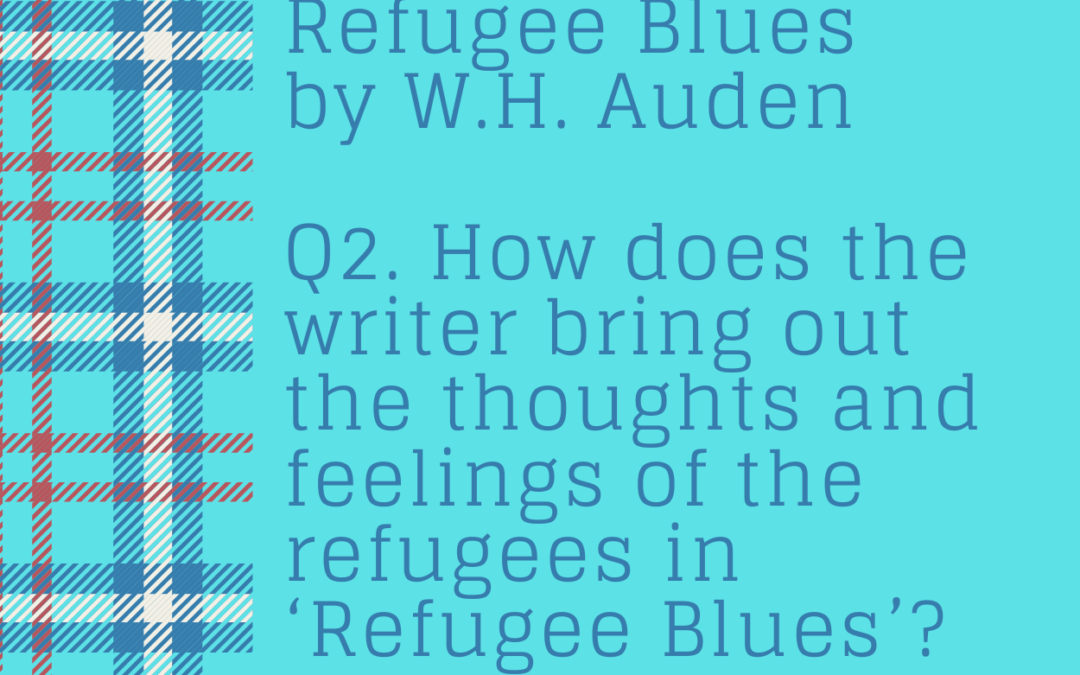Edexcel English IGCSE: Refugee Blues Model Essays
Q2. How does the writer bring out the thoughts and feelings of the refugees in ‘Refugee Blues’?
In your answer, think about:
- the situation the refugees are in;
- other people’s reactions to the refugees;
- the contrasts in the poem;
- any other interesting use of language.
You should refer closely to the poem to support your answer. You may use brief quotations.
Edexcel English IGCSE Model Essay by an Expert
The refugees are experiencing rejection, having already been forced to leave their home country. Their sense of justice is captured through the use of contrasts.
Before they even arrive in this country, the refugees have experienced great trauma. They are German Jews who have been forced to leave Germany because of Hitler’s anti-Semitic regime. The refugees are still frightened by their experience, and feel personally victimised by the regime. In “the thunder rumbling in the sky”, the narrator hears Hitler’s voice, showing that they are haunted by their experiences, and still feel unsafe. At the end of the poem, the narrator remembers the dangers of living in Germany: “Ten thousand soldiers marched […] Looking for you and me”. The striking contrast between the huge number of soldiers, and their two victims creates a tone of confusion and despair; they cannot understand why they were hunted.
The refugees are not well-received in their new country, and experience rejection from the people they encounter. The consul “banged the table” and declares them “officially dead”, suggesting that he is angry and frustrated with them. The injustice of this bureaucratic problem is captured in the narrator’s bemused reaction, “we are still alive, my dear”. The repetition of this phrase creates a wistful and almost apologetic tone, showing that they are not deliberately causing a problem. A member of the public also accuses refugees of wanting to “steal our daily bread”. Again, the narrator reacts with bemusement and depression, with the repeated phrase “he was talking of you and me”. This expresses surprise at such a hostile accusation, again highlighting that their intentions are not to cause trouble, but just to be safe.
The refugees are made to feel that they have an even lower status than animals in their new country. The narrator contrasts their homelessness with the treatment of domestic animals: a poodle is wearing a jacket, and someone opens a door to let in a cat. This observation shows that even animals are treated better than German Jews. The narrator also comments on the unnaturalness of their treatment by contrasting their predicament with the relative freedom of nature. The birds “sang at their ease” because they are not at the mercy of tyrannical politicians; this is in direct contrast to the “human race”, who are forced into singing songs about their suffering, such as this “blues” poem. The contrasts with nature’s freedom show that humans have created an unnecessarily complex system, which has turned the innocent refugees into victims in both their home and new countries.
The refugees have to endure many trials, but the tone in this poem is not angry or violent. Rather, they are weary and bemused about the injustices of their situation.
Students also browsed:

